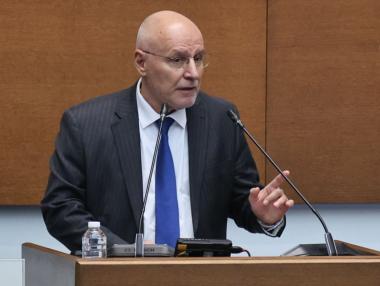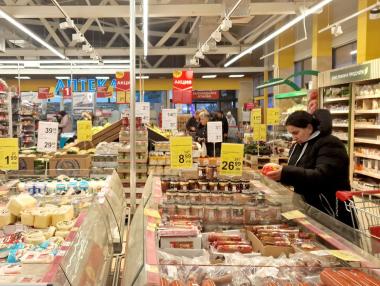Bulgaria takes out 4 billion euros in debt amid strong international interest
The strong investor interest and confidence has allowed a significant reduction in the cost of financing

The strong investor interest and confidence has allowed a significant reduction in the cost of financing

A survey by Economic.bg aimed to define the concerns over the introduction of the single European currency

These financial institutions will manage the country's future medium-term note emissions

The news was announced by Prime Minister Zhelyazkov during a joint briefing with EU Council President Antonio Costa

This is despite BNB's forecasted higher average annual inflation for 2025

The main reason for the adjustment is the incoming data on the strong economic activity in the country.

Bulgaria's GDP will expand by 2.5% this year

It has been statistically and scientifically shown that none of the countries that adopted the euro have experienced initial inflation spikes by more than half a percent.

The criterion was met for the first time in February, when Bulgaria's inflation rate fully matched that of the eurozone.

The new estimate is for 3.1% for 2025